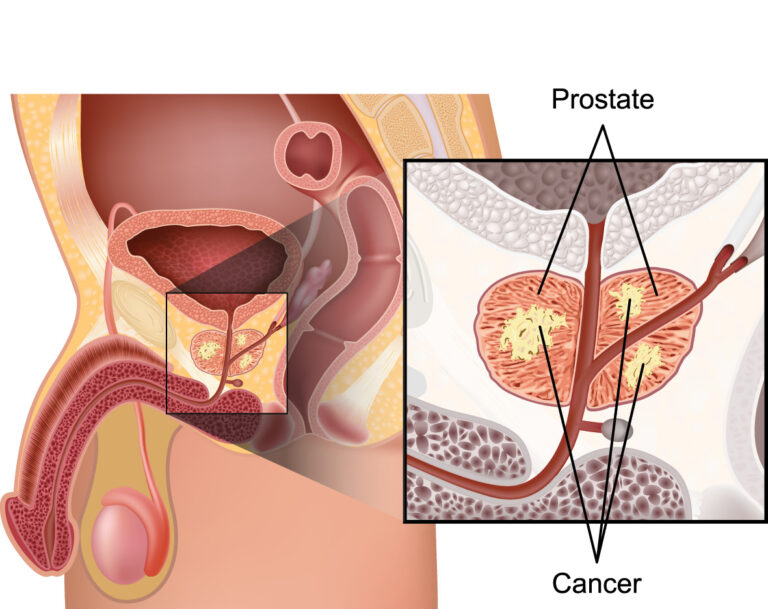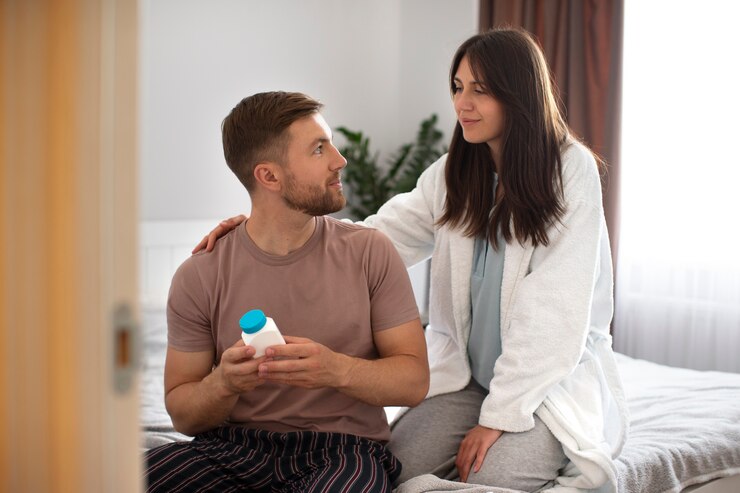Cultivating Confidence: The Role of Mental Health in Sexual Performance

Understanding the Connection between Mental Health and Sexual Performance
Improving sexual performance is a common concern for individuals, and it is important to understand the connection between mental health and sexual performance. Mental health plays a significant role in overall well-being, and it can have a profound impact on sexual function. Psychological factors such as stress, anxiety, depression, and low self-esteem can affect sexual desire, arousal, and satisfaction.
Stress, in particular, can be a major contributor to sexual difficulties. When the body is under stress, it releases cortisol and adrenaline, which can interfere with sexual response. Chronic stress can also lead to fatigue, reduced libido, and difficulty achieving orgasm. Similarly, anxiety and depression can negatively affect sexual desire and performance. These mental health conditions can cause feelings of sadness, hopelessness, and low self-worth, which can undermine sexual confidence and enjoyment.
Moreover, low self-esteem can have a direct impact on sexual performance. Negative body image, feelings of inadequacy, and self-doubt can significantly affect sexual satisfaction. Individuals with low self-esteem may be more likely to experience sexual dysfunction, struggle with intimacy, and have difficulty communicating their needs and desires to their partner.
Understanding the connection between mental health and sexual performance is crucial for addressing and improving these concerns. Recognizing the impact of stress, anxiety, depression, and low self-esteem on sexual function allows individuals to seek appropriate help and support to enhance their overall well-being and sexual satisfaction. By addressing mental health concerns and building resilience, individuals can cultivate a healthy mindset that positively influences their sexual experiences.
Exploring the Impact of Self-esteem on Sexual Confidence
Self-esteem plays a significant role in shaping our overall confidence, and this extends to our sexual experiences as well. When it comes to sexual confidence, having a healthy level of self-esteem is crucial. The way we perceive ourselves, both mentally and physically, can directly impact our comfort level and satisfaction with our sexual performance.

Research has consistently shown that individuals with low self-esteem are more likely to experience feelings of inadequacy and self-doubt during sexual encounters. Negative feelings about oneself can lead to anxiety, inhibitions, and a lack of assertiveness in expressing desires and needs. This can ultimately affect the quality of the sexual experience for both individuals involved.
Conversely, individuals with high self-esteem tend to exhibit greater sexual confidence. They are more likely to embrace their bodies, feel comfortable expressing their desires, and engage in open and honest communication with their partner. This positive self-image and self-assurance can lead to a more satisfying and fulfilling sexual experience.
Developing and nurturing self-esteem can involve various strategies, such as practicing self-care, seeking therapy or counseling, challenging negative self-talk, and surrounding oneself with supportive and positive influences. By working on building self-esteem, individuals can empower themselves to overcome insecurities and cultivate a healthier and more confident approach to their sexual experiences.
Recognizing the Role of Anxiety and Stress in Sexual Performance
Anxiety and stress can have a significant impact on sexual performance. When we experience anxiety, our body’s stress response system kicks into action, causing physiological changes that can interfere with sexual arousal and performance. These changes may include increased heart rate, rapid breathing, and tense muscles, which can make it difficult to relax and fully enjoy sexual experiences.
In addition to the physical symptoms, anxiety can also have a psychological impact on sexual functioning. Worries about performance, body image, or satisfying a partner can create a cycle of negative thoughts and increased anxiety, further exacerbating the issue. This can lead to a lack of confidence and a decrease in sexual desire.
Various studies have shown a strong connection between anxiety/stress and sexual dysfunction. For example, a study conducted by the International Society for Sexual Medicine found that individuals with generalized anxiety disorder were more likely to report sexual dysfunction, such as difficulties with arousal, orgasm, and overall satisfaction. Another study published in the Journal of Sexual Medicine found that stress and anxiety were among the most common factors contributing to sexual difficulties in both men and women.
It’s important to recognize the role of anxiety and stress in sexual performance and seek appropriate support and treatment if needed. By addressing the underlying anxiety and learning effective coping strategies, individuals can often regain their confidence and improve their sexual experiences.
Overcoming Performance Anxiety: Strategies for Boosting Confidence

Performance anxiety can have a significant impact on sexual confidence and satisfaction. It can occur in both men and women, and can be triggered by various factors including fear of performance failure, negative body image, or past experiences. However, there are strategies that can be effective in overcoming performance anxiety and boosting confidence in the bedroom.
One strategy is to develop a positive mindset and focus on the pleasure and intimacy of the sexual experience rather than solely on performance. By shifting the focus away from expected outcomes, individuals can reduce anxiety and enhance their enjoyment of the moment. Deep breathing exercises, mindfulness techniques, and visualization can also help to calm the mind and relax the body, allowing for a more enjoyable and confident sexual experience. Additionally, open and honest communication with your partner about any concerns or insecurities can help to alleviate anxiety and build trust, further enhancing sexual confidence.
The Influence of Body Image on Sexual Self-assurance
Body image can play a significant role in one’s sexual self-assurance. How we perceive our own bodies has a direct impact on our confidence and comfort levels in intimate situations. When individuals have negative body image perceptions, they may feel self-conscious, anxious, or even ashamed during sexual encounters. These feelings can hinder their ability to fully engage and enjoy the experience.
Various factors can contribute to the development of negative body image, including cultural ideals, media influence, and personal experiences. For example, unrealistic beauty standards often depicted in media can create a distorted perception of what is considered attractive. This can lead individuals to compare themselves to these ideals and feel inadequate or insecure about their own bodies.
While body image concerns can affect both men and women, research suggests that women tend to be more vulnerable to body dissatisfaction due to societal pressures surrounding appearance. Studies have shown that women who perceive themselves as overweight or unattractive are more likely to experience sexual difficulties such as decreased sexual desire, arousal difficulties, and decreased sexual satisfaction.
It is essential to address and work towards improving body image to promote sexual self-assurance. This can be achieved through various strategies, such as self-acceptance, body-positive affirmations, and challenging unrealistic beauty standards. Seeking professional support from therapists, counselors, or support groups can also be beneficial in fostering a healthier body image and boosting sexual self-confidence.
In the next section, we will delve further into strategies and practices that can help individuals embrace self-acceptance and body positivity, ultimately leading to better sexual confidence.
Building Emotional Intimacy for a More Satisfying Sexual Experience
Emotional intimacy plays a vital role in creating a more satisfying sexual experience. When partners share a deep emotional connection, it can enhance their overall sexual satisfaction and intimacy. Emotional intimacy involves the ability to be vulnerable, open, and honest with your partner, creating a safe space for both physical and emotional exploration.
When emotional intimacy is cultivated, it allows for a greater understanding of each other’s needs, desires, and boundaries. This understanding can lead to increased trust and communication, which are essential foundations for a healthy and fulfilling sexual relationship. In fact, studies have shown that couples who prioritize emotional intimacy reported higher levels of sexual satisfaction and relationship happiness.
Furthermore, emotional intimacy can help to foster a sense of acceptance and support within the relationship. When partners feel truly seen and heard by their significant other, it can lead to a greater sense of security and confidence in expressing their sexual desires and fantasies. This level of vulnerability and acceptance can contribute to a deeper level of connection and intimacy during sexual encounters.
Building emotional intimacy requires ongoing effort and communication from both partners. It involves actively listening to each other, expressing emotions, and being open to vulnerability. Couples can foster emotional intimacy by engaging in activities that facilitate emotional connection, such as deep conversations, shared experiences, and intentional quality time together. It is important to create a space where each partner feels comfortable sharing their thoughts, feelings, and desires without judgment or criticism.
By prioritizing emotional intimacy in your relationship, you can create a solid foundation for a more satisfying sexual experience. When partners feel emotionally connected, they are more likely to experience greater sexual pleasure, fulfillment, and intimacy. Taking the time to cultivate and nurture emotional intimacy can profoundly enhance the overall quality of your sexual relationship.
Addressing Communication Issues and Their Impact on Sexual Confidence
Communication plays a crucial role in every aspect of a relationship, including sexual intimacy. When it comes to sexual confidence, addressing communication issues can have a significant impact. Effective communication allows partners to express their desires, needs, and boundaries, fostering a sense of trust and connection.
Lack of communication in the bedroom can lead to misunderstandings, unmet expectations, and decreased sexual satisfaction. Without open and honest dialogue, individuals may feel hesitant to express their preferences or address concerns, which can contribute to feelings of anxiety and insecurity. It is important for partners to create a safe and non-judgmental space where they can openly communicate about their desires, fears, and experiences.
Research suggests that couples who engage in open and constructive communication about their sexual needs and concerns are more likely to have higher levels of sexual satisfaction and confidence. Effective communication also allows for the exploration of new experiences and fantasies, leading to a more fulfilling sex life. Talking openly about sexual desires, performance anxieties, and boundaries can help alleviate insecurities and build mutual understanding and trust.
In addition to verbal communication, non-verbal cues also play a vital role in sexual confidence. Paying attention to each other’s body language, facial expressions, and responses can help partners better understand and cater to each other’s needs. Active listening and non-judgmental responses can create a supportive atmosphere where both partners feel accepted and validated.
By addressing communication issues and fostering open and honest dialogue, individuals and couples can enhance their sexual confidence, strengthen their relationships, and experience greater sexual fulfillment. It is essential to prioritize communication as an integral part of sexual intimacy, paving the way for a more pleasurable and satisfying experience.
The Link between Mental Health Disorders and Sexual Dysfunction
Mental health disorders can have a profound impact on various aspects of one’s life, including their sexual function. Sexual dysfunction is a common occurrence among individuals with mental health disorders, and understanding the link between the two is crucial in providing appropriate support and treatment.
Research has consistently shown that mental health disorders such as depression, anxiety, and bipolar disorder can significantly contribute to sexual dysfunction. For instance, depression affects neurotransmitters in the brain, leading to reduced sexual desire, difficulty achieving arousal or orgasm, and overall dissatisfaction with sexual experiences. Similarly, anxiety disorders can cause performance anxiety, inhibiting sexual performance and enjoyment. These conditions can lead to decreased libido, erectile dysfunction, premature ejaculation, and other sexual challenges.
It is essential to recognize that mental health disorders can manifest differently in each individual, and so does the impact on sexual function. Therefore, it is crucial to approach this issue with sensitivity and understanding, providing a safe space for individuals to discuss their concerns and seek appropriate help. By addressing mental health disorders alongside sexual dysfunction, healthcare professionals can offer comprehensive support to improve the overall well-being and quality of life for those affected.
Coping with Depression and its Effects on Sexual Performance
Depression is a mental health disorder that can have a profound impact on every aspect of a person’s life, including their sexual performance. It is estimated that approximately 16 million adults in the United States experience at least one major depressive episode each year, making it a prevalent condition that deserves attention and understanding.

When it comes to sexual performance, depression can cause a range of effects. Both men and women may experience a decrease in libido, making it more difficult to feel aroused or interested in sexual activities. In addition, depression can lead to difficulties in achieving or maintaining an erection for men, and decreased vaginal lubrication for women. These physical challenges can be accompanied by emotional symptoms such as feelings of guilt, shame, or sadness, which further hinder sexual confidence.
Moreover, the impact of depression on sexual performance can be layered with other factors. For example, the medications commonly prescribed for depression, such as selective serotonin reuptake inhibitors (SSRIs), may contribute to sexual side effects, including decreased libido, erectile dysfunction, or delayed orgasm. The combination of these physiological and psychological effects can create a complex web that affects one’s overall sexual wellbeing.
Addressing the effects of depression on sexual performance requires a comprehensive approach that encompasses both mental health and sexual health. Seeking professional help is the first step towards understanding and managing the complex relationship between depression and sexual performance. Therapists, psychologists, and gynecologists can provide support and guidance in navigating these challenges. Open and honest communication with a healthcare provider is crucial to developing a tailored treatment plan that may include therapy, medication adjustments, or lifestyle changes to improve both mental and sexual wellbeing. By taking a proactive approach and seeking appropriate help, individuals can begin to regain their sexual confidence and experience a more satisfying and fulfilling intimate life.
Managing Anxiety Disorders to Improve Sexual Confidence
Anxiety disorders can have a significant impact on sexual confidence, causing distress and affecting personal relationships. Understanding how to manage anxiety disorders can lead to improved sexual confidence and overall well-being.
One effective approach to managing anxiety disorders is through therapy, specifically cognitive-behavioral therapy (CBT). CBT helps individuals identify and challenge negative thought patterns that contribute to anxiety. By addressing and reframing these thoughts, individuals can develop a more positive and realistic outlook, reducing anxiety levels and improving overall sexual confidence.
In addition to therapy, lifestyle changes can also play a crucial role in managing anxiety disorders. Regular exercise, healthy sleep habits, and stress management techniques, such as deep breathing and relaxation exercises, can help alleviate symptoms of anxiety. It is important to create a supportive and understanding environment, where individuals feel comfortable expressing their concerns and seeking professional help when needed.
With the right strategies and support, managing anxiety disorders can lead to improved sexual confidence and a healthier overall state of mind. It is important to remember that seeking professional help is a sign of strength and a step towards a more fulfilling and satisfying sexual experience.
Navigating the Impact of Trauma on Sexual Well-being
Trauma can have a profound impact on many aspects of an individual’s life, including their sexual well-being. Sexual trauma, such as sexual abuse or assault, can lead to a range of challenges and difficulties when it comes to experiencing healthy and fulfilling sexual relationships. It is important to recognize that the effects of trauma can vary widely from person to person, and each individual’s healing journey is unique.
One common effect of trauma on sexual well-being is the development of sexual dysfunctions, such as decreased sexual desire, difficulty becoming sexually aroused, or pain during intercourse. These issues can be deeply distressing for survivors of trauma, as they can interfere with their ability to engage in intimate and pleasurable experiences with their partners. Additionally, trauma can also result in the formation of negative beliefs and fears surrounding sex, which can further contribute to difficulties in sexual functioning. It is crucial for individuals impacted by trauma to seek professional support, such as therapy or counseling, to navigate these challenges and work towards reclaiming their sexual well-being.
Enhancing Self-acceptance and Body Positivity for Better Sexual Confidence
Self-acceptance and body positivity play crucial roles in fostering better sexual confidence. When individuals feel comfortable and accepting of their bodies, they are more likely to experience higher levels of self-esteem and satisfaction with their own sexual performance. This positive mindset can create a ripple effect, enhancing overall sexual well-being.
Body positivity involves embracing and celebrating the diversity of body shapes, sizes, and appearances. By challenging societal beauty standards, individuals can learn to appreciate their own unique physical attributes. Research has shown that individuals who have a positive body image are more likely to have a fulfilling and enjoyable sexual life. They are less likely to experience performance anxiety or feel self-conscious during intimate moments.
Self-acceptance is closely tied to body positivity, as it involves accepting oneself unconditionally, including one’s flaws and imperfections. It is important to recognize that everyone’s body is different, and comparison to others can be detrimental to one’s self-esteem. By practicing self-acceptance, individuals can focus on their own pleasure and satisfaction rather than seeking validation from external sources.
Enhancing self-acceptance and body positivity requires a shift in mindset and self-talk. It is essential to challenge negative thoughts and beliefs about one’s appearance and sexuality. This can be achieved through various strategies, such as practicing self-care, focusing on personal strengths and accomplishments, surrounding oneself with positive influences, and seeking support from friends, loved ones, or professionals.
In conclusion, embracing self-acceptance and body positivity is a vital step towards improving sexual confidence. By nurturing a positive and accepting relationship with one’s own body, individuals can experience greater self-esteem, reduced performance anxiety, and overall satisfaction with their sexual lives. Through self-reflection, support systems, and adopting positive self-talk, individuals can embark on a journey towards embracing their unique bodies and enhancing their sexual well-being.
Overcoming Shame and Guilt to Cultivate Sexual Empowerment
Shame and guilt can have a profound impact on one’s sexual empowerment, often hindering individuals from fully embracing their own desires and engaging in satisfying sexual experiences. These complex emotions can stem from various sources, including societal norms, past traumas, or personal beliefs.
It is crucial to understand that shame and guilt surrounding sexuality are often ingrained in us from a young age, influenced by cultural and religious influences, societal expectations, and personal experiences. These emotions can manifest in different ways, such as feeling embarrassed about one’s body, feeling guilty for experiencing pleasure, or feeling undeserving of intimacy and love.
Overcoming these feelings of shame and guilt requires a compassionate and supportive approach. It is important to recognize that embracing our sexuality is a natural and healthy aspect of human life. By challenging societal norms and cultural conditioning, individuals can cultivate sexual empowerment and create a more fulfilling and authentic experience for themselves.
Acknowledging and working through shame and guilt involves self-reflection, open communication, and seeking professional support when necessary. Therapy, counseling, or support groups can provide a safe space for individuals to explore their emotions, identify underlying causes, and develop strategies to overcome shame and guilt.
Ultimately, overcoming shame and guilt is an ongoing journey that requires patience and understanding. By challenging societal expectations and embracing our own unique sexual identities, we can cultivate sexual empowerment and enhance our overall well-being. This process allows individuals to embrace pleasure, connection, and intimacy, leading to a more fulfilling and satisfying sexual experience.
The Role of Therapy and Counseling in Improving Sexual Confidence
Therapy and counseling play a crucial role in improving sexual confidence for individuals facing challenges in their intimate lives. By seeking professional help, individuals can gain a deeper understanding of the psychological factors affecting their sexual experiences and develop effective strategies to overcome them. In a safe and confidential environment, therapists work closely with their clients to identify the underlying causes of sexual confidence issues, which may range from past traumas to performance anxiety or relationship difficulties.
Therapists utilize evidence-based techniques and approaches to address these concerns and empower individuals to regain control over their sexual well-being. Cognitive-behavioral therapy (CBT), for example, focuses on identifying and modifying negative thought patterns and behaviors that contribute to sexual confidence problems. This type of therapy equips individuals with practical tools and coping mechanisms to manage anxiety, build self-esteem, and improve communication skills, all of which are crucial components for a satisfying sexual experience. Additionally, other forms of therapy, such as sex therapy and couples counseling, can help individuals and their partners develop a deeper understanding of their desires, boundaries, and needs within the intimate relationship. As a result, therapy and counseling provide individuals with the tools, support, and guidance necessary to overcome hurdles and enhance their sexual confidence, leading to a more fulfilling and satisfying sexual life.
Embracing Self-care Practices to Promote Mental Health and Sexual Performance
Taking care of your mental health is crucial for overall well-being, and it can also have a significant impact on your sexual performance. Engaging in self-care practices that promote mental health can help improve your sexual experiences and boost your confidence in the bedroom.
One important aspect of self-care is managing stress and anxiety. High levels of stress can negatively affect sexual desire, arousal, and performance. Incorporating stress-reducing activities into your routine, such as regular exercise, meditation, or deep breathing exercises, can help alleviate anxiety and promote a sense of calmness. These practices can have a positive impact on both your mental health and your sexual performance.
Another important self-care practice is prioritizing sleep. Lack of sleep has been linked to increased levels of stress, irritability, and decreased sexual desire. Getting enough restful sleep not only helps to recharge your body but also improves your overall mood and mental well-being. Creating a bedtime routine, ensuring a comfortable sleeping environment, and practicing good sleep hygiene can go a long way in supporting mental health and enhancing sexual performance.
Incorporating self-care practices into your daily routine can help promote mental health and enhance your sexual experiences. By managing stress, prioritizing sleep, and engaging in activities that bring you joy and relaxation, you can cultivate a healthier mindset and boost your confidence in the bedroom. Taking care of your mental health is a key component of overall wellness, and it can positively impact your sexual well-being as well.
What is the connection between mental health and sexual performance?
Mental health can greatly impact sexual performance. Issues such as stress, anxiety, depression, and trauma can affect libido, arousal, and overall sexual satisfaction.
How does self-esteem affect sexual confidence?
Self-esteem plays a significant role in sexual confidence. When individuals have low self-esteem, they may struggle with body image issues, feel insecure about their performance, and have difficulty expressing their desires.
Can anxiety and stress have an impact on sexual performance?
Yes, anxiety and stress can negatively affect sexual performance. These psychological factors can lead to performance anxiety, difficulty in achieving or maintaining an erection or arousal, and overall decreased sexual satisfaction.
What strategies can help boost confidence and overcome performance anxiety?
Strategies to overcome performance anxiety include practicing relaxation techniques, open communication with your partner, setting realistic expectations, and seeking therapy or counseling if necessary.
How does body image influence sexual self-assurance?
Body image can significantly impact sexual self-assurance. Negative body image can lead to self-consciousness, decreased sexual desire, and overall dissatisfaction with one’s own appearance during sexual experiences.
How can emotional intimacy enhance sexual experiences?
Emotional intimacy fosters trust, open communication, and a deeper connection between partners. This can lead to increased satisfaction, trust, and comfort in sexual experiences.
How do communication issues affect sexual confidence?
Communication issues can create misunderstandings, unmet expectations, and lack of sexual satisfaction. Open and honest communication is crucial for expressing desires, discussing boundaries, and building sexual confidence.
Are mental health disorders linked to sexual dysfunction?
Yes, mental health disorders such as depression, anxiety disorders, and post-traumatic stress disorder (PTSD) can contribute to sexual dysfunction, including decreased libido, difficulty achieving orgasm, and erectile dysfunction.
How does depression impact sexual performance?
Depression can significantly affect sexual performance by reducing libido, causing difficulty in achieving arousal or orgasm, and overall diminishing sexual pleasure and satisfaction.
Can anxiety disorders affect sexual confidence?
Yes, anxiety disorders can have a negative impact on sexual confidence. Symptoms such as excessive worry, fear, and panic can interfere with sexual desire, arousal, and overall sexual satisfaction.
How does trauma affect sexual well-being?
Trauma can have a profound impact on sexual well-being. Survivors of trauma may experience flashbacks, anxiety, fear, and difficulty trusting others, which can contribute to sexual dysfunction and decreased sexual confidence.
How can self-acceptance and body positivity improve sexual confidence?
Self-acceptance and body positivity can enhance sexual confidence by reducing body image issues and promoting self-love. Embracing one’s body and accepting oneself can lead to increased comfort and satisfaction in sexual experiences.
How can individuals overcome shame and guilt to cultivate sexual empowerment?
Overcoming shame and guilt involves addressing and challenging negative beliefs and societal expectations around sexuality. Therapy, self-reflection, and open communication with supportive individuals can aid in cultivating sexual empowerment.
What role does therapy and counseling play in improving sexual confidence?
Therapy and counseling can provide a safe and supportive space to address underlying issues affecting sexual confidence. Professionals can offer guidance, techniques, and coping strategies to help individuals improve their sexual well-being.
How can self-care practices promote mental health and sexual performance?
Self-care practices such as exercise, mindfulness, adequate sleep, and healthy lifestyle choices can positively impact mental health and overall sexual well-being. Taking care of oneself physically and emotionally can enhance confidence, reduce stress, and improve sexual experiences.







